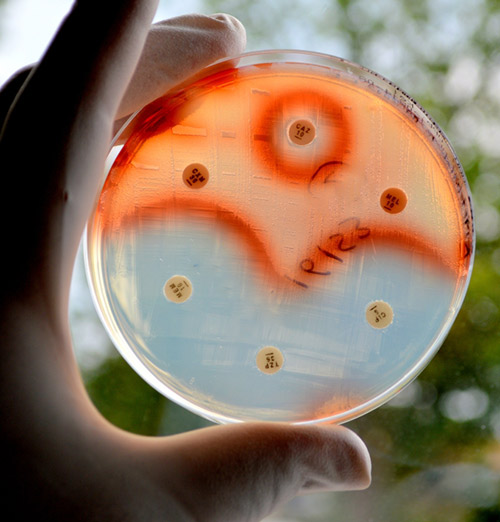
Source: iStock/Scharvik
Scientists at Tel Aviv University say they have developed a tool that tackles the problem of antibiotic resistance while also providing a new approach to combatting bacterial infections. Their method overcomes antibiotic resistance in selected bacteria, and renders other bacteria more sensitive to antibiotics, explain the researchers.
The study (“Temperate and lytic bacteriophages programmed to sensitize and kill antibiotic-resistant bacteria”), published in PNAS, relies on the use of phages, which transfer “edited” DNA into resistant bacteria to kill off resistant strains and make others more sensitive to antibiotics.
According to the researchers, the system, if ultimately applied to pathogens on hospital surfaces or medical personnel's hands, could turn the tide on untreatable, often lethal bacterial infections. “Since there are only a few pathogens in hospitals that cause most of the antibiotic-resistance infections, we wish to specifically design appropriate sensitization treatments for each one of them,” notes Udi Qimron, Ph.D., of the department of clinical microbiology and immunology at TAU's Sackler Faculty of Medicine. “We will have to choose suitable combinations of DNA-delivering phages that would deliver the DNA into pathogens, and the suitable combination of 'killing' phages that could select the re-sensitized pathogens.”
Antibiotic-resistant pathogens constitute an increasing threat because antibiotics are designed to select resistant pathogens over sensitive ones. “The injected DNA does two things: It eliminates the genes that cause resistance to antibiotics, and it confers protection against lethal phages,” continues Dr. Qimron. “We managed to devise a way to restore antibiotic sensitivity to drug-resistant bacteria, and also prevent the transfer of genes that create that resistance among bacteria.
Earlier research by Dr. Qimron revealed that bacteria could be sensitized to certain antibiotics and that specific chemical agents could “choose” those bacteria more susceptible to antibiotics. His strategy harnesses the power of the CRISPR-Cas system.
“We use phages for delivering a programmable DNA nuclease, clustered regularly interspaced short palindromic repeats (CRISPR)–CRISPR-associated (Cas), to reverse antibiotic resistance and eliminate the transfer of resistance between strains,” write the investigators. “This approach combines CRISPR-Cas delivery with lytic phage selection of antibiotic-sensitized bacteria. The strategy may reduce the prevalence of antibiotic-resistant bacteria in treated surfaces and on skin of medical personnel, as it uses phages in a unique way that overcomes many of the hurdles encountered by phage therapy.”
Dr. Qimron and his team are now set to apply the CRISPR/phage system on Pseudomonas aeruginosa, one of the world's most prevalent antibiotic-resistant pathogens involved in hospital-acquired infections, and to test whether bacterial sensitization works in a more complex microbial environment: the mouse cage.


